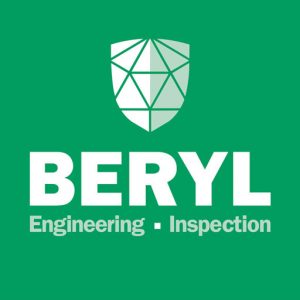Common Electrical Issues Found in Home Inspections
An important part of Florida home inspections is a home’s electrical system. Fire and injuries are always risks to be avoided and faulty electrical systems increase those risks. Here is a list of common electrical issues Beryl technicians have seen in Hillsborough County home inspections. Any of these conditions in your home must be remedied before putting it up for sale.
Unsafe Wire Connections or Terminations
When two wires connect, they must be bound together with a wire nut and enclosed in an approved junction box. When a wire stops with no connection, it should be capped with a wire nut and enclosed in an approved junction box to prevent fire or injury.
Ungrounded Receptacles
Homes built before 1960 may still have older 2-wire receptacles. These are easy to spot because the plugin only allows a two-pronged plug. Current Florida electrical codes require 3-pronged receptacles that include a grounding conductor. The receptacle cover should be removed to ensure the required 3-wire configuration is intact.
Missing Wire Bushings and/or Clamps
Wire clamps or rubber bushings are required whenever wiring enters a metal junction box or appliance. This is to prevent shorting, sparking, or fire from damage to the wires caused by abrasion. These bushings or clamps are often overlooked when wiring is added in an existing home during a renovation or DIY project.
Baseboard Heaters Installed Under Receptacles
Electric baseboard heaters should never be installed below an electrical receptacle. The cord from the receptacle can drape over the heater and melt. The melted cord could cause electric shock or fire. An electrician should move the receptacle or the heater.
Extension Cords in Permanent Use
Extension cords are meant to be a temporary solution. But we often see them used semi-permanently or permanently all over Hillsborough County for outside fountains, sprinkler systems, and even indoor displays. It is much safer to have an electrician install more receptacles in the areas needed.
Improperly Wired Receptacles
Electrical receptacles are designed to be wired in a specific way in order to function properly and safely. Many DIYers are prone to cross wires from inexperience and cause major problems. Reverse polarity and even reversing the hot and ground wires has been discovered in some Hillsborough County home inspections. This must be corrected by a licensed electrician.
Non-Functional GFCI Protection
Ground Fault Circuit Interrupters (GFCI) can be in the form of a GFCI receptacle or a GFCI circuit breaker. Florida electrical codes require GFCI protection in areas where electricity and water can possibly meet. This includes kitchens, bathrooms, unfinished basements, garages, and exterior receptacles.
Improperly Wired Subpanels
Subpanels are often installed when an addition is added to the home and extra circuits are needed. Subpanels can contain one or several circuit breakers downstream from the main service disconnect. They can be located anywhere in the existing portion of the home or in the new addition. Florida electrical codes stipulate precise ways for these panels to connect to the home’s main panel. They also must be grounded in a specific way.
These are some of the most common electrical issues Beryl technicians find in Hillsborough County home inspections. Are you preparing to sell your home in Tampa or the surrounding areas? Beryl Project Engineering provides quality, reliable home inspections. Contact us by phone or online for more information or to schedule an inspection.


